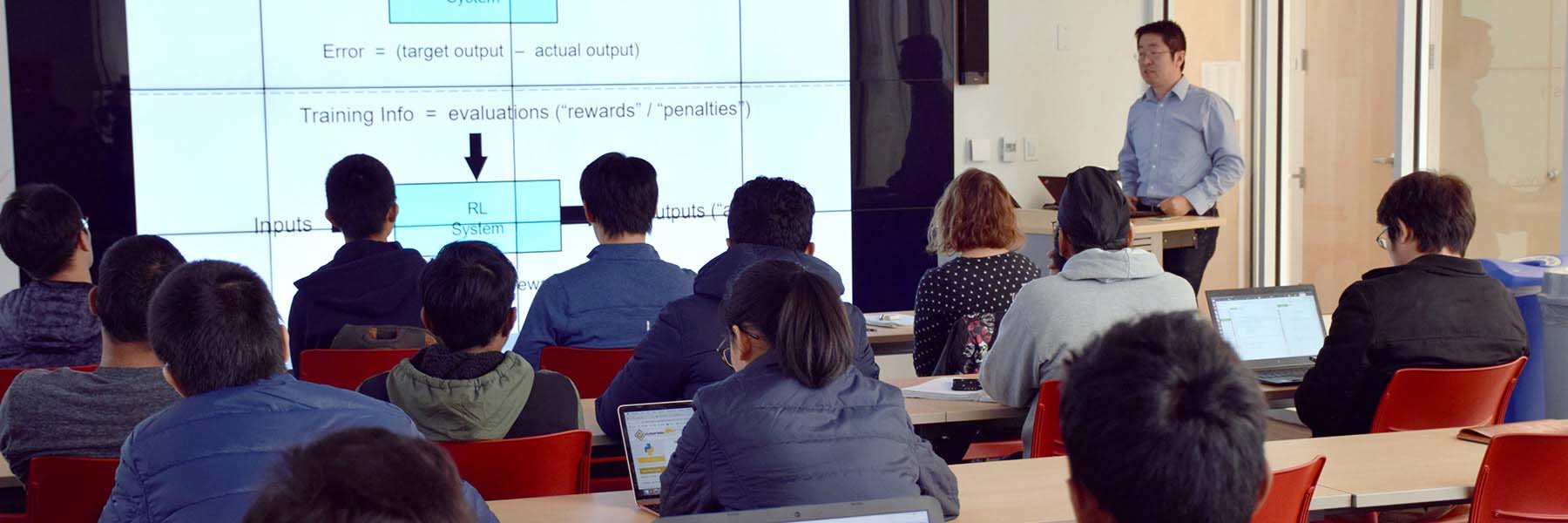In our Master of Science in Intelligent Systems Engineering (ISE) program, you will get technical expertise in computational engineering and artificial intelligence—the future of engineering and problem solving.
This two-year program teaches you to use modern approaches and design principles to develop systems or devices that gather, interpret, and use data. You can work in the microscopic sensors that make our devices, homes, and vehicles “smart.” Go into advanced health diagnostics and tissue engineering. Master the massive systems that analyze the flood of data around us and drive decision making. And much more.
You will study at IU Bloomington—a top research university located in a multicultural small city—and will graduate ready for a Ph.D. program or a variety of high-demand careers.
Learn about career preparation

